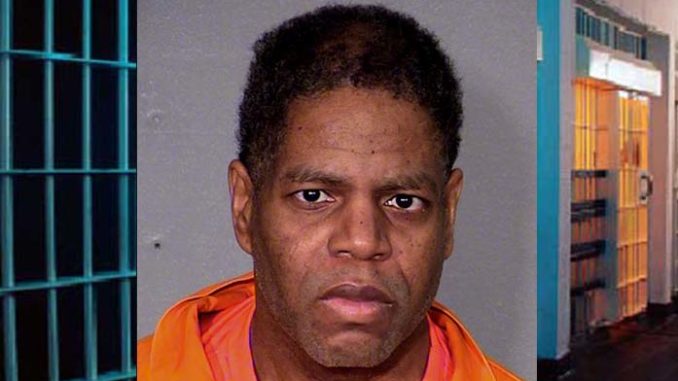
A Tucson man found guilty by a jury of trying to kill a former girlfriend in March 2015 was properly convicted, but he must be resentenced due to an error by the trial judge’s error in reviewing the defendant’s criminal history, the Arizona Court of Appeals ruled last week.
Kevin Dunbar was convicted in December 2017 in Pima County Superior Court of attempted first-degree murder, domestic violence kidnapping, aggravated assault with a deadly weapon, and possession of a firearm by a prohibited possessor. Court records show he shot his former girlfriend multiple times as she sat in a vehicle outside her apartment.
Dunbar, 54, was later sentenced to prison terms of 6 years, 14 years, and two 18.5-year terms which must be served back-to-back. With credit for the 978 days he was jailed pending the outcome of the case, Dunbar is eligible for release until in December 2046.
An appeal filed by Dunbar challenges his convictions and prison terms, alleging multiple procedural errors. Those alleged errors included the judge’s denial of Dunbar’s motion on the first day of trial to act as his own attorney, and the judge’s refusal to let Dunbar have access to 15 years of the victim’s mental health records.
On April 29, the court of appeals ruled there were no legal errors leading to Dunbar’s convictions. But the three-judge panel agreed with Dunbar that the trial judge incorrectly calculated the number of Dunbar’s prior felony convictions.
According to the ruling, the trial judge sentenced Dunbar as a category two repetitive offender based on the belief that Dunbar’s two previous weapon convictions in New York equated to one prior historical felony conviction in Arizona. That calculation was incorrect, the appellate court determined.
“Since the (out of state) offenses do not included every element that would be required to prove an enumerated Arizona offense, the two felony weapon possession convictions could not be used to enhance Dunbar’s sentences” on three of the four charges, the ruling states.
The appellate ruling also notes the Pima County judge relied on the same incorrect data to impose maximum sentences on the aggravated assault and the prohibited possessor charges. In addition, sentences for the attempted murder and prohibited possessor charges must be served at the same time, not consecutively, the judges ruled.
As a result, the trial judge must conduct a new sentencing hearing, according to the order.
The Arizona Attorney General’s Office now has 30 days to ask to the Arizona Supreme Court to review the case. The appellate ruling won’t take effect until any review by the supreme court is completed.
